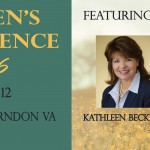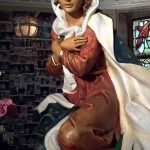A happened upon this piece while Googling St. Elizabeth Ann Seton earlier. I almost titled this post The Little Sisters of the Poor Are Women, Too. Seton is a timely saint to celebrate! (But then what saint isn’t? But a blessed New Yorker sure hits close to home!)
From that piece:
Where religious freedom flourishes, so do women, and so too does society. A review of our nation’s history makes this case.
Catholic women have served our country well. Consider the lives of St. Elizabeth Ann Seton, St. Katherine Drexel and, more recently, Dorothy Day and Nellie Gray. American Catholic women, particularly religious women, founded the first hospitals, parochial schools, social service institutions and have led advocacy efforts on behalf of the poor, those oppressed and the most vulnerable today: the unborn.
American Catholic religious and lay women have made significant contributions to our society precisely because of their freedom to practice our faith. Religious freedom enables Catholic women to contribute to the common good, foster peace, promote justice, protect life, defend dignity and raise children with values conducive to good citizenship.
In societies that protect religious freedom, women are set free. Religious freedom, belief in God and all the morality that implies actually ends up confirming women in all their liberty. You can’t have one without the other.
If we cannot reconcile our religious beliefs with our own sense of femininity, then not only are we in trouble as women, but something is terribly wrong with our society. A society that claims women are freer when they are chemically or surgically altered has lost the understanding of freedom. A government that asserts that pregnancy is a disease and that the natural functioning of a woman’s body is a burden to her and to society undermines women’s dignity, denies her freedom and is dangerously anti-feminine.
(More on femininity from Pat Gohn here and here.)
The author comes from the Diocese of Pittsburgh, which is on the forefront of this current religious-liberty fight. I was just highlighting Bishop Zubrik there and his bipartisan plea on the topic, as it happens.











